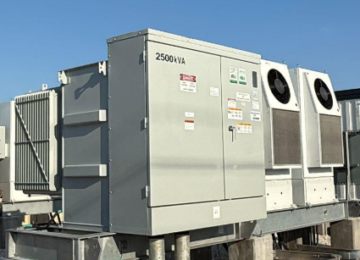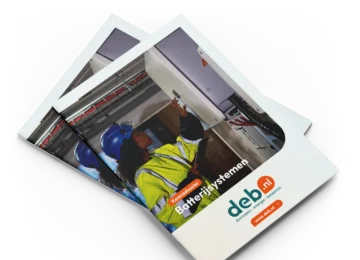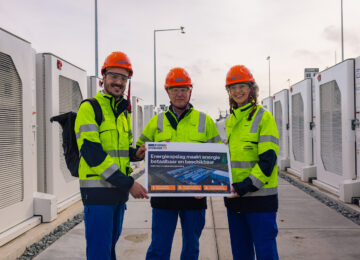Home batteries do not cause additional grid congestion
A parliamentary letter was published yesterday on the 'Progress talks with industry on home battery agreements'. These discussions were initiated after an information session on home batteries, organized by Energy Storage NL, and requests from Holland Solar and Netbeheer Nederland to the ministry to quickly develop policy for this. During the Energy Storage NL session, a sprint team was formed that focused on agreements for grid-neutral incorporation of home batteries.
Chance of additional grid congestion smaller than thought
The sprint team, consisting of grid operators, the Ministry of Climate and Green Growth, industry associations such as Energy Storage NL (ESNL) and Holland Solar, and various market parties, has spent the past few months investigating whether a covenant and hallmark are needed to prevent home batteries from worsening grid congestion.
However, the interviews revealed that the home battery market is moving toward its own use of locally generated solar power, which actually helps alleviate grid congestion. In addition, participation in the imbalance market has become less attractive, reducing the risk of negative impact of home batteries on the grid. These insights are confirmed by recent research by DNV, which concludes that home batteries currently contribute little to additional grid load.
Because market participants perceive that customers are reluctant to accept loss of revenue resulting from limiting battery deployment, providers who label would be at a disadvantage to competitors who do not - unless a fee were offered for the flexibility provided. However, grid operators do not currently consider such fees appropriate. It was therefore decided to refrain from developing a covenant and label in the short term. Instead, the parties involved are committed to a long-term approach through the National Grid Congestion Action Program (LAN). This approach focuses on smart control of devices, financial incentives and voluntary agreements for congestion management on low-voltage grids, with a planned implementation starting in 2028.
Home batteries as solution to grid congestion
All parties in the sprint team see opportunities for home batteries to actively contribute precisely to solving grid congestion, provided they charge or discharge at the right times. Through so-called congestion management agreements, batteries can be controlled at the request of the grid operator, in exchange for a fee. To test this in practice, specific pilots will be started with market parties and grid operators in the near future. All parties recognize the potential of home batteries as a flexible link in the low-voltage grid and the importance of clear agreements within the LAN.
Response from Energy Storage NL and Holland Solar
Energy Storage NL is positive about the outcome of the trajectory and the recognition that home batteries do not currently cause additional grid congestion.
Jeroen Neefs- Energy Storage NL: "It is good that we collectively - as developers, grid operators and the ministry - agree that home batteries are no longer seen as a problem, but rather as part of the solution to grid congestion. To realize their full potential, the right incentives are needed. Now that this insight is there, it is time to work with a new cabinet and the grid operators to take concrete steps in rewarding own consumption among other things via home batteries, but also for example via individual heat storage."
Wijnand van Hooff - Holland Solar: "Home batteries, according to all parties in the sprint team, can help households increase their own consumption of solar energy, thereby both keeping household energy bills low and reducing grid congestion. The outcome of the talks illustrates the importance of agreeing on congestion management on low-voltage grids so that households get the right incentives and flexibility is encouraged. Meeting the 2028 deadline for congestion management on low-voltage grids is thus indispensable'.
At the same time, industry associations stress the importance of monitoring. Changes in the adoption rate or the deployment of home batteries in different energy markets can still make a hallmark relevant. This is why ESNL and Holland Solar continue to monitor developments together with the sector and grid operators. Twice a year - after the summer and after the winter - meetings are organized in which practical data, adaptation figures and market developments are shared. These insights help to take further steps together towards effective congestion management.





